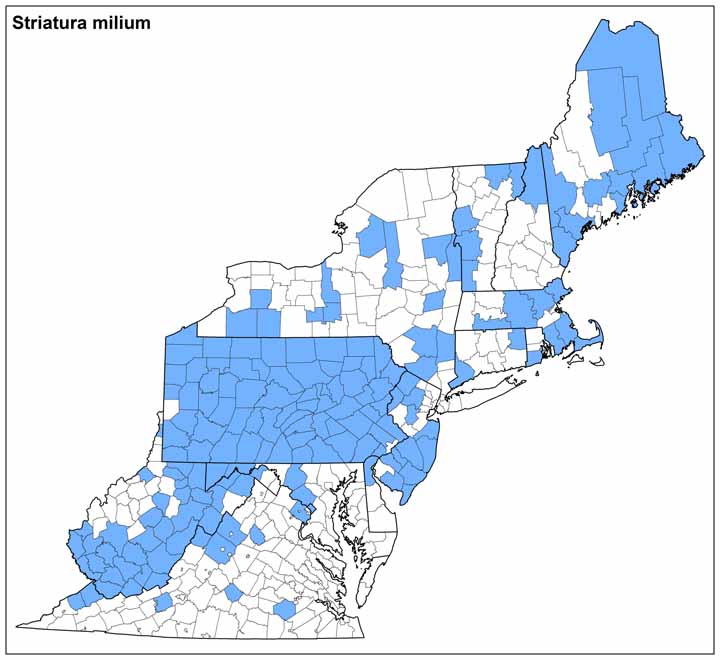Land Snails
.jpg)
.jpg)
.jpg)
Photo(s): Shell of Striatura milium © Jeff Nekola. The close-up of the protoconch shows it is mainly smooth.
Click photo(s) to enlarge.
Striatura milium (E.S. Morse, 1859)
Family: Gastrodontidae
Common name: Fine-ribbed Striate
Identification
Width: 1.5 mm
Height: 0.8 mm
Whorls: 3
The tiny shell of Striatura milium has a depressed heliciform shape, is more loosely coiled and has a little bit coarser microsculpture than other Striatura species. Compared with other striates, it lacks sculpture on its nuclear whorl. The tops of the remaining whorls are ribbed radially, with intersecting spiral lirae. The base is nearly smooth. The umbilicus is open and the rounded aperture is angled slightly downward.
Ecology
This animal is one of the most abundant leaf litter snails of the Northeast, inhabiting mesic upland woods. In northern Maine it is ubiquitous, except at the wettest sites, with populations highest in acid, wooded wetlands and fens (Nekola, 2008). It is common in New York’s Adirondack Mountains as well (Beier et al., 2012).
Taxonomy
Striatura milium has also been known as Helix milium, Striatura milium, and Zonites milium.
Distribution
This species is a high-latitude animal with a range extending south in the East. Striatura milium has been found as far west as South Dakota, south to Louisiana, and north to the Canadian Maritime provinces. It Virginia it is reported from northeastern counties. Burch (1956) reports this species from the Richmond area counties, but may have confused this species with S. meridionalis.
NatureServe Global Rank: G5
NatureServe State Rank: S1S3
Virginia’s wildlife action plan: Tier IV
Ken Hotopp, Meegan Winslow 11/2012
Range Map (click to enlarge)


